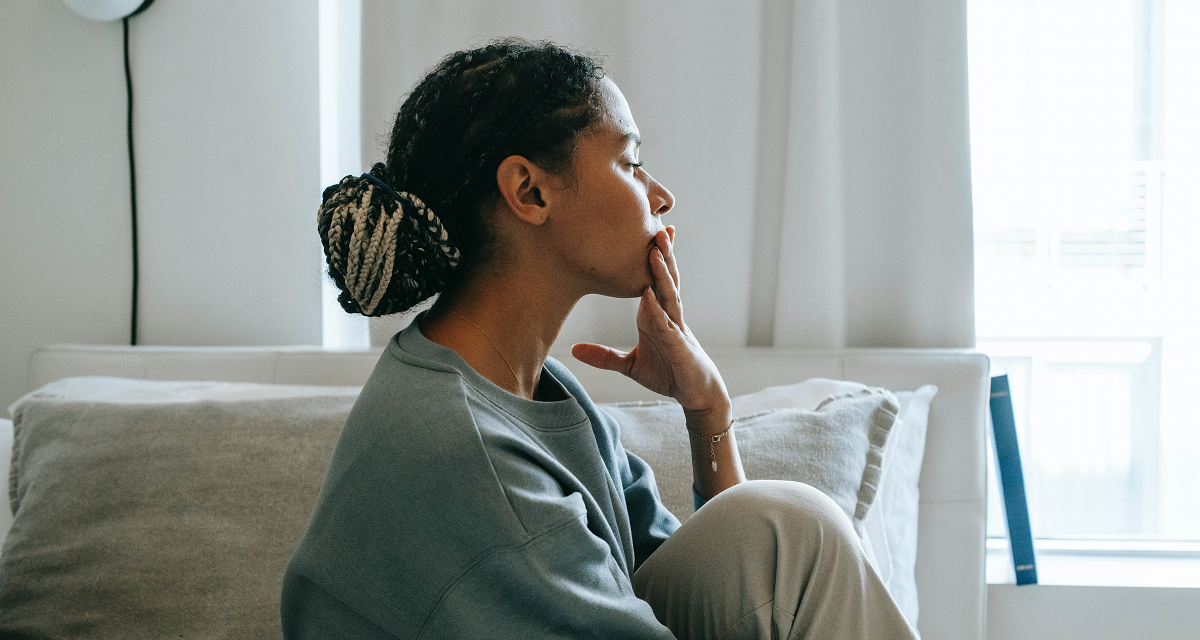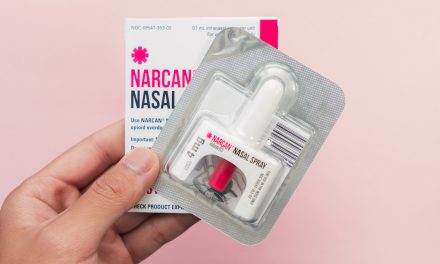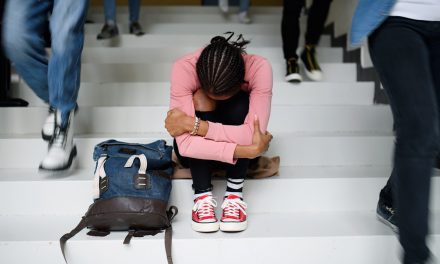Note: Sources’ names have been changed to protect anonymity.
Cheslie Kryst, winner of the 2019 Miss USA Pageant, died by suicide earlier this year in a tragic event that broke hearts and headlines across the country. Her sudden death sparked nationwide conversations about mental health, especially after her mother April Simpkins revealed Kryst had been battling depression. Even as her daughter’s closest confidant, Simpkins was not aware of how much depression was affecting her until shortly before her death.
The loss of the beautiful, charismatic pageant queen to such a gruesome death led many to question just how this happens. According to the National Alliance on Mental Illness (NAMI), Black adults in the U.S. are more likely than other races to report feelings of sadness, hopelessness, and other symptoms of emotional distress. However, only one in three Black adults who need mental health care actually receive it due to a variety of factors including access to quality care and stigma.
Kryst’s suicide highlights an unfortunately common concern among Black individuals and families: the belief that mental illness is a taboo or shameful subject, which often prevents people from seeking support and treatment. A study examining Black Americans’ beliefs about mental illness found that 63% of Black individuals believe a mental health condition is a sign of personal weakness.
For two Black women living in Missouri, this hush-hush mentality within the family kept them struggling silently until adulthood, forcing them to forge their own path to healing. Kyra Jackson, a mother and grandmother living in Missouri, didn’t see mental health normalized until beginning her career in health care and looking after her own children. Bailey Coleman, a former track athlete and coach living in the Kansas City metro, was unaware of her struggles until college and is still seeking support to this day.
Secrets Prolong Struggles
For both women, mental health wasn’t discussed in the home growing up. Though it was clear that some family members were withdrawn, the extent of their challenges were unclear, and were never discussed openly. Though there may have been signs each woman was struggling personally, neither felt that this was a topic to be discussed aloud.
The first time Coleman recalls hearing mental illness discussed was when she eavesdropped on her mother and aunt discussing her aunt’s antidepressants. It was clear this was not a conversation she was meant to hear but she was fascinated to learn that her successful aunt was struggling emotionally. “It was kind of eye opening, like life’s not really what it is,” she said. “There’s a lot of stuff behind the scenes that people don’t talk about, even family.”
As she grew older, she became more aware of the secrets being whispered behind closed doors – if at all. Watching her grandmother age, she realized even dementia wasn’t something to be discussed, with most of the family being left in the dark regarding her condition. It wasn’t until last year that Coleman finally heard a family member explicitly express concern about their grandmother’s mental health and cognitive decline.
In her opinion, mental health is a taboo among Black families – including her own – because of the stigma it carries. “Black families don’t really want to give another reason for someone to think we are weaker or lesser than,” she said. “I hate to say that, but I truly think that’s what it is, especially when it comes to my family.”
As a child, Jackson similarly felt there was no way she could have brought her anxious thoughts to the attention of her mom, a single mother working two jobs to put food on the table for her and her siblings. “I could not go to her and say, ‘Mom I’m struggling with thoughts that won’t stop, I’m constantly worried, I’m incessantly replaying things in my mind and I can’t get past the replay,’” she said. “I couldn’t go to her with that, she would’ve dismissed me so quickly.”
As she grew older and started seeing others struggle, and especially after she became a mother and experienced the challenges that come with, she knew she wanted her children to feel safe opening up about their own mental health. “I still hadn’t yet connected the dots, even as a new mom, that I was struggling emotionally and pretty much have always struggled emotionally,” she said. “It just wasn’t normal enough, it hadn’t been normalized.”
Also raised by a single mother, alongside a sister seven years older, Coleman thinks the expectations placed on Black women to be stronger than their peers attributed to mental health being a taboo subject in her family as well as others. As adults, she and her sister are just now realizing how much their mother struggled throughout their adolescent years, silently pushing her own concerns to the side.
Faith’s Role in Black Mental Health
Though members of Coleman’s family rarely expressed concern, when they did, they were encouraged to turn to faith for help, rather than to seek medical help or treatment. When she eventually reached a breaking point in her depression in college, and was once again told to pursue religion, she realized generational patterns surrounding mental health would need to be broken for any real healing to occur.
“Black families don’t believe in mental health — I experienced that firsthand,” she said. “There’s so many times where something was going on and I was like, they should probably be reaching out for help at this point and they’re not.”
Despite attending church every Sunday, participating in two different bible study groups, and reading literature on her own time, Coleman could not grasp one particularly glaring concept – why did this religion require so much suffering? She had sought out help and support because of her suffering and was instead pointed to a solution that seemingly required her to suffer more.
In contrast, Jackson found a path to healing through guidance from her faith. “As a Christian woman, one of the tenants of scripture is that God gives us wisdom,” she said. “I knew that I could go to God in prayer and get help. I also knew that it was okay for me to seek help from a mental health provider, and so I did both.”
She didn’t realize the extent of her own mental health struggles until race-related issues she had usually compartmentalized broke through her usually calm and collected surface. “I couldn’t push through the way that I was taught,” Jackson said. “My faith taught me that it’s okay to seek out help and so I did.”
She specifically sought the help of a Black female therapist, who she believed would be best able to empathize with her experiences and take them seriously. Fortunate to have insurance and to find a Black female therapist still accepting patients, which has been a struggle for many (including Coleman), she was finally able to receive the validation she had been without for so long.
“Sometimes I would question, ‘Did that really happen?’ and ‘Is that racist or am I playing the race card? Did I really see what I just saw or did I really hear what I just heard?’” she said. “This woman, this doctor, was very instrumental in letting me know, ‘You are valid, what you’re feeling is real and is worthy of respect, and you’re going to be okay.’ Having her to talk to about big and small things, it’s been invaluable.”
Suffering in Silence
Because mental health was such a taboo subject growing up, Coleman didn’t fully realize her own struggles until five years ago, near the end of her college career. She was running track on a scholarship, having been a competitive runner for most of her life, when she was injured. Suddenly being stripped of both her physical ability and her closeness with her team took an overwhelming toll on her sense of identity and purpose.
Though she was no stranger to injuries, she knew this time was different. She was constantly tired, struggled to sleep and attend classes, didn’t want to talk to anyone, and consistently felt like she wasn’t good enough, among other signs of emotional distress. What hurt Coleman the most was the isolation from her team during the difficult preseason and not being able to hurt alongside them as an active teammate like she did prior to her injury.
Coleman discussed these feelings with her coach, who recognized them as symptoms of depression and encouraged her to seek help. She immediately went to the team’s trainers to receive initial testing and discuss treatment options. However, she quickly realized how daunting the healing process would be.
“The first thing they ask is, ‘has anyone in your family gone through this?’” she said. “It felt so terrible to not be able to answer that question because I didn’t even know my own family history at the time.” The only information she had to provide was what she had learned from eavesdropping. She knew her aunt had been on antidepressants at some point, but not much else.
After receiving an official diagnosis, she started seeing a therapist on campus and was prescribed Zoloft, which when paired together seemed like a swift and painless solution. However, neither quite caught on. She only met with her therapist, who was white, two or three times before deciding it wasn’t a good fit and learned early on she didn’t trust herself to take the medication correctly.
“There was one day that will never leave my mind,” she said. “I was going to take my Zoloft and all of them accidentally fell in my hand. I just remember staring at all of the pills in my hand and thinking, I could end this all right now and never ever have to feel like this again. It was pretty scary.”
She reached out to her boyfriend at the time for comfort, explaining the situation and asking if he could relate to that feeling of wanting to die, but not wanting to actually commit suicide. He laughed in response, prompting her to once again bottle her feelings of not being good enough, being simultaneously numb and overwhelmed, and wanting it all to be over.
To this day, Coleman believes flushing those pills was the best thing she’s ever done for herself – an experience she hasn’t been able to open up about again until recently. This past summer, she confided in her sister about her near-suicide attempt for the first time. “She was very surprised, actually,” she said. “It kind of confirmed that wow, no one is paying attention to me when it comes to me deeper than what I’m showing on the outside.”
However, even she struggled to extend a hand to others, noticing similar challenges in her niece but not knowing how to help. She recalls the family having to once hide all the sharp objects in the house from her niece. “All I wanted so badly at that time was to tell her she wasn’t alone and that I was here for her and knew exactly what she was going through,” she said. “But I felt so weak at the time, I was still going through these things myself, there was no way I could drag someone else into the way I was feeling.”
Since then, she has opened up to her niece about her own depression, who was shocked to discover she wasn’t alone. “She was like, ‘You’ve thought about suicide?’ and I said, ‘You have no idea how many people are struggling silently.’”
Throughout childhood, Jackson also noticed family members who were clearly struggling, but realized nothing was being done. Year after year, holiday gatherings came and went – presents were opened and meals were eaten while a withdrawn uncle or cousin sat silently in the corner. “Nobody was saying, ‘Hey, I see you, how can I help you?’” she said. “It was just accepted and we went on our merry way.”
After beginning a career in health care as an adult, and becoming acclimated to a variety of health and mental health care issues, she finally recognized that seeking mental health treatment was not only normal, but acceptable. She had grown up with a superwoman mentality that many Black women, including those in Coleman’s family, carry. As a mother, finally able to look back into her own childhood and recognize signs of anxiety, she knew it was up to her to break the pattern of silence for her own children.
Breaking Generational Patterns
Similar to Jackson, Coleman can now look back and pinpoint multiple signs of mental health concerns in her childhood, long before she finally sought help in college. However, when she initially shared her test results with her mother and admitted she was possibly depressed, it was clear the secrecy surrounding these topics still made it impossible to discuss, even as an adult. “My mom immediately shut it down, which then shut me down from talking to her about it for another couple of years where I didn’t bring it up,” she said. “I did a lot of it on my own for a long time.”
After her initial unsuccessful attempt with therapy following her diagnosis, Coleman tried again to find support near the beginning of the COVID-19 pandemic. However, her therapist related everything back to the pandemic, rather than recognizing the true roots of her concerns traced back to childhood, and she eventually stopped going after several sessions.
Now, she is still seeking mental health treatment, but on her own terms. She’s always felt a bit misunderstood by her peers and now multiple white therapists and believes that a Black female therapist may be a better fit. “I think there’s going to be some experiences that she may have had that are very similar to mine,” she said. “There is a little part of me that’s scared to talk about some things with someone who maybe can’t relate or with someone who doesn’t look like me.”
However, Black female therapists in the area have been hard to come by, leaving Coleman to continue healing on her own for the time being. Along with journaling and shadow work, she also leaned into gardening, a hobby that helps her feel more connected to her grandmother. When feeling too lethargic to care for herself, she forced herself to take care of her plants – something she says has been a huge help for her during the hard days.
Over time, through her own introspection and research, Coleman noticed she can’t remember much of her childhood, a common phenomenon for people who experienced trauma in their developing years. “I think naturally I have pushed a lot of stuff away which is super painful to think about because I should have been able to talk to at least one person in my family and I wasn’t able to,” she said. “Now I’m trying to connect all these dots while also trying to talk to my mom and my sister and my aunt.”
Though she hasn’t always been able to discuss her struggles with her family, she finally felt able to open up to her mother this year, expressing that she isn’t okay but will be, and is figuring it out. To her surprise, her mom has also started to open up, as well as her sister, beginning a break in the generational patterns of silence that kept her without help for so long.
“I think my mom does see now that wasn’t the way to handle it at all and she’s a lot more there for me now,” Coleman said. Having experienced this shift in her family, she believes mental health is not so much a taboo as it is simply something new. When someone is experiencing or learning something new, it can be difficult to talk about, and she believes this attributed to her family struggling to discuss mental health issues without immediately shutting them down out of shame.
Though there is much work left to do to completely break these generational patterns, Coleman and her family have made enormous strides. As family members begin to open up, she sees not only how much easier things will be for younger ones like her niece, but also how difficult the road has been for older members, like her sister and mother. Her mom even checks in monthly to see if she is treating her mental health and still seeking therapy – though small, and sometimes unhelpful, Coleman recognizes this is her mother’s attempt to be involved and show support.
“Black families have to stop keeping secrets,” she said. “I hate how many secrets there are in my family and I know other Black families are probably the exact same. It’s not helping anyone. At this point, I have no shame, and I realized very early on that in this world you can’t have shame. You have to be 100% ready to be yourself. Know when you’re wrong, but don’t be scared to be wrong.”
Jackson has made similar strides in her family, focusing on the younger generations, including her children and nieces, ensuring it’s well understood that there is an open-door policy and discussing mental health is not a taboo. “We don’t talk about it with the larger family because quite frankly, we really don’t have the time or energy or space for negativity,” she said. “We deal with enough.”
Even though mental health has been difficult to discuss with her family throughout her life, she finds joy in spending time with them, and still finds her mother waiting for her at the door when she visits. For those who are struggling, whether they are family or colleagues or strangers, she encourages them to find joy in every day, no matter how small. “Whatever it looks like for them, find it somewhere, because our days can be difficult,” she said. “If the one thing that we can muster in our day is to find just a little reprieve, then that counts, that means something.”
Investing in Identity
Although Coleman appreciates the life lessons she gained from being an athlete, such as discipline and wellness, she worries about the impact of investing solely in Black children’s athleticism. Raised by a single Black mother working two jobs, Coleman pursued athletics out of love for the sport as much as for the athletic scholarship – the only reason she was able to attend college.
Though she doesn’t consider it wasted time, she does see now as an adult the impact made by dedicating herself to one aspect of her life. After graduating, especially following her injury and subsequent diagnosis, she realized most of her friends and even boyfriends she had were teammates, people she had been forced to spend time with and become close to. As an adult, she now struggles to make friends without that same setup.
She also realized how much she neglected her creativity to focus on athletics. Considering herself more creative than athletic, she wonders how much different things would be – and how much happier she might be – had she invested more time in other interests. Having spent so much of her college career focused on running, she also largely neglected her academic pursuits, leaving her struggling to find a new career path following her retirement from running.
“There should be something called ‘no longer an athlete syndrome’ because I’m definitely going through it, I don’t know anything else,” she said. “I don’t have an identity and I’m learning what my identity is now. That takes a lot.”
Since graduating, Coleman has been coaching high school track, specifically to serve as an ‘un-role model’ for her students. “I wanted to show my kids that you don’t have to be perfect, you don’t have to be anything but yourself, and staying true to yourself is the most important thing,” she said. Similar to Jackson, Coleman makes it known that she is an open book and is ready and willing to talk to anyone about anything. “So many times in my life I felt like I was alone,” she said. “If I just had one person – one person share a similar experience – it would have made a world of difference.”
For Coleman, coaching at the same high school she attended has been a full-circle moment. Though she enjoyed the experience of being an athlete at the time, she now sees the potential harm in investing solely in Black children’s athletic talents, rather than pushing them to explore their whole selves.
At her school, children are required to attend a mandatory number of weight sessions every summer, leaving little room for extracurricular activities or time with family and friends. These adolescent athletes are not paid for their time or hard work on or off the track or field, sometimes sustain multiple injuries, and are kept away from other interests and social groups. Even then, it’s not guaranteed they’ll make the cut.
“Push Black kids to do more than be athletes,” Coleman said. “Black families need to realize that kids can get to college on other scholarships besides just sports scholarships. It comes with realizing that Black people are more than athletes and I think a lot of people aren’t ready to have that conversation.”
Coleman recognizes that most parents are simply trying to do what they think is best for their children and set them up for success – which is precisely what happened for her. Her dedication to track opened the door to college, and she realizes the privilege in that, though it came with a cost.
“I’m trying to unlearn that and know that I am more than just a runner,” she said. “But it’s hard when even now people still ask, ‘how’d your track career finish up?’ or ‘are you still coaching track?’ Can you ask me what I do outside of those things? Can you ask me how my garden is going? Can you ask me how my knitting is going? I taught myself how to knit – ask me about those things.”
A New Purpose
As Coleman prepares to wrap up her last season coaching, she is happy to move away from athletics and embark on an entirely new journey. She recently discovered she is expecting and is excited to become a mom and experience all the ups and downs that come with her new role.
“I have a new purpose, I have someone else to take care of,” she said. “When I can’t take care of myself, I realize I have to, because I’m now bringing life into this world. Since it is so early I do still have those nerves, but I know I can handle it. I was a 400 runner so I can do anything.”
As a new mother, she plans to extend the lessons she brought to coaching into her own family, continuing to remind her loved ones and especially her future child that she is there for them, they are loved, and they are not alone. Most importantly, she wants to continue teaching those around her that there is no correct way to be.
“In terms of Black mental health, I think a lot of us feel that there’s a lot of pressure to be something, when in all reality there’s no pressure to be anything but yourself,” she said. “There’s so much self-hatred that whether we want to admit it or not, we all have it, and it’s just because we were all taught that growing up.”
For Coleman, breaking the hush-hush mentality surrounding mental health in Black families will take time, education, and systemic change. Barriers to quality care, such as the lack of Black therapists available who can share and empathize with people’s lived experiences, will require changes within the institutional and systemic levels.
Education, however, simply requires conversation. Black families and individuals can begin breaking generational patterns by shedding themselves of the shame they were taught to carry, and finding strength in vulnerability. For Coleman, the path to healing began as a solitary one, until she built up the courage to confront her family’s history of secrecy. Now, as she prepares for motherhood, she understands the strength she will have to continue to possess not only for herself, but for her child – a challenge she has recognized in her own mother and will now be taking on.
Though the road to healing hasn’t been easy for many Black individuals and their families, Jackson believes the Black community is well activated to lead the charge in normalizing mental health. She trusts that this generation will be the last to consider the topic a taboo, and believes in her soul that she will be on the front lines leading the charge – a challenge that won’t be easy to live up to.
“I think we have to first understand the pervasiveness in all of its forms,” she said. “Mental health is not monolithic, we have to really understand how mental health shows up, and although it shows up differently for all of us, we have to be willing to talk about it.”
Working in a predominantly white community, she professionally struggles with speaking candidly about her own challenges with mental health out of fear of losing contracts or being seen differently. “We often say, ‘Don’t ever give anyone a stick to hit you with,’” she said. “We’re often dodging those sticks. I think from a mental health standpoint, we need allies of all shapes, colors, and forms. It’s going to take a village.”
Resources
For those who are struggling, you are not alone. The Black Mental Health Alliance provides information and resources regarding mental health, including a “Find a Therapist” locator to find a culturally competent mental health professional near you. Visit the website or call 410.338.2642 to learn more.
Below are more resources dedicated to improving mental health for Black individuals:
- Black Emotional and Mental Health Collective (BEAM): Group aimed at removing access barriers Black people face when seeking emotional health care and treatment. This is achieved through education, training, advocacy, and the creative arts.
- Black Men Heal: Limited and selective free mental health service opportunities for Black men.
- Black Women’s Health Imperative: Organization advancing health equity and social justice for Black women through policy, advocacy, education, research, and leadership development.
- Boris Lawrence Henson Foundation: Individuals with life-changing stressors and anxiety related to the coronavirus will have the cost for up to five individual sessions defrayed on a first come, first serve basis until all funds are committed or exhausted.
- Ebony’s Mental Health Resources by State: List of Black-owned and focused mental health resources by state as compiled by Ebony magazine.
- Melanin and Mental Health: Connects individuals with culturally competent clinicians committed to serving the mental health needs of Black & Latinx/Hispanic communities. Promotes the growth and healing of diverse communities through its website, online directory, and events.
- Sista Afya: Organization that provides mental wellness education, resource connection, and community support for Black women.
- Therapy for Black Girls: Online space that offers listings of mental health professionals across the country who provide high quality, culturally competent services to Black women and girls, an informational podcast, and an online support community.
- The SIWE Project: Non-profit dedicated to promoting mental health awareness throughout the global Black community.
- The Steve Fund: Organization focused on supporting the mental health and emotional well-being of young people of color.
Unapologetically Us: Online community for Black women to seek support.








